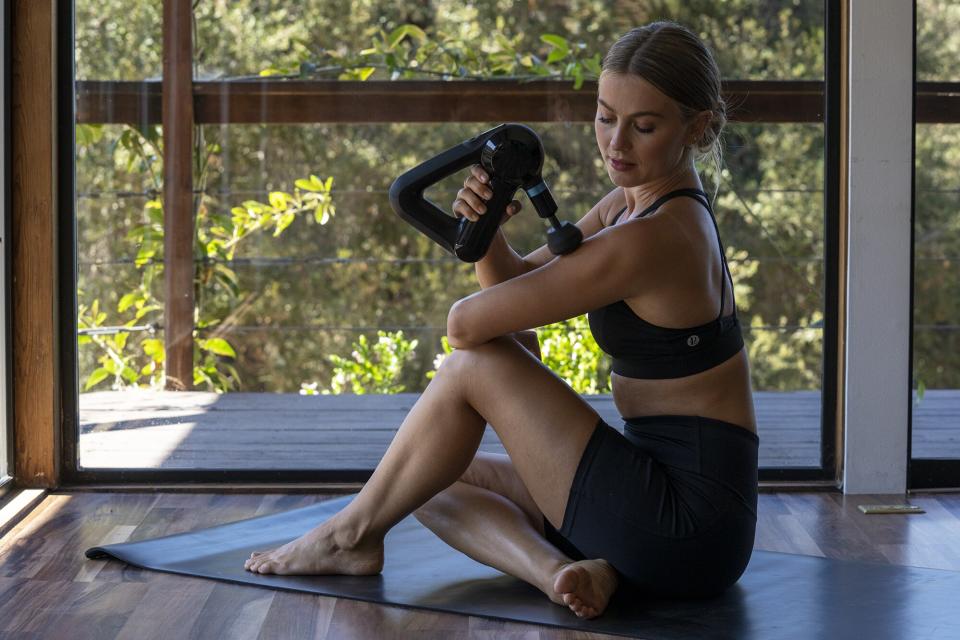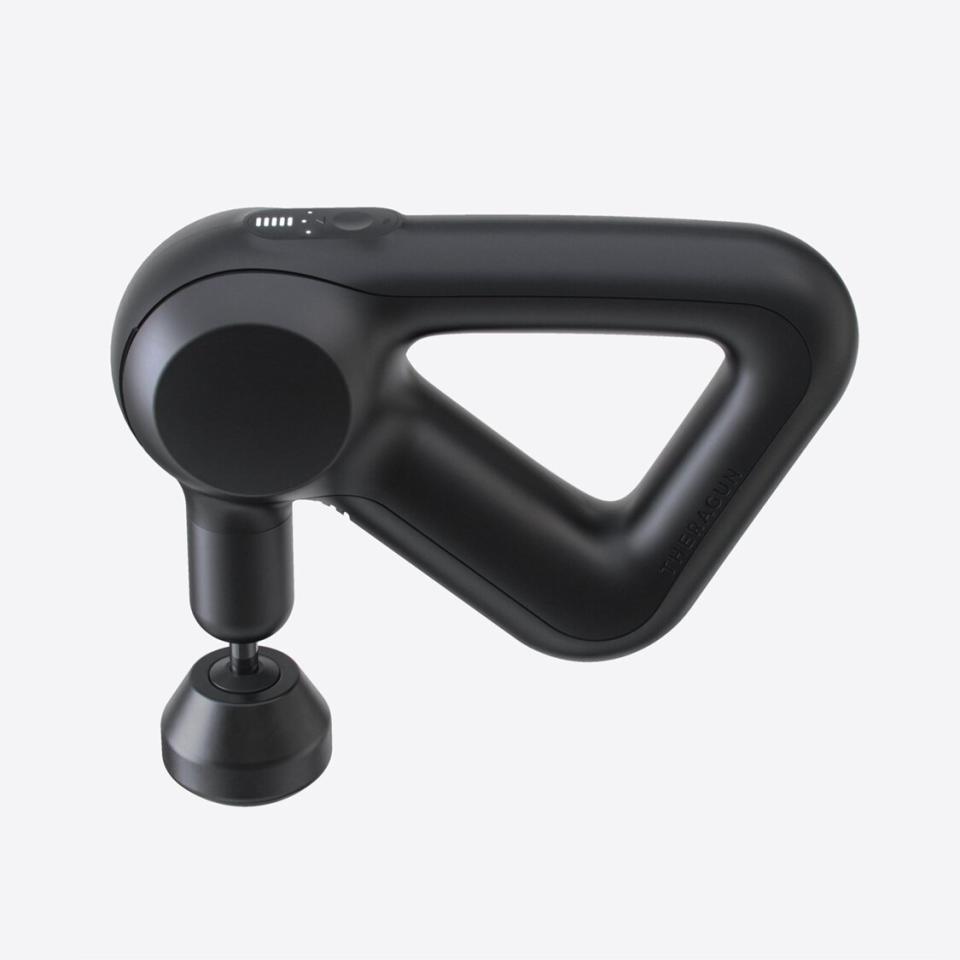Julianne Hough Says She Would Push Herself So Hard, Her Mindset Got 'Foggy'

- Oops!Something went wrong.Please try again later.
Getty Images
No one keeps it moving quite like Julianne Hough. Whether she's cartwheeling across the grasses of Positano, Italy, or breaking into a dance at her home gym, the 33-year-old infectious energy has a way of radiating off the 'gram. But there was once a time when Hough's body and mind weren't so in sync.
"I think what I've realized over the years, being an athlete and a dancer, is there has always been so much focus on performance and a perfect body and all of those things, but I never really gave myself the opportunity to heal and to recover. So my mindset started getting more foggy because I was pushing so hard," Hough recalls to Shape. "The fact that I am now able to focus on the rejuvenation of my body has helped open my mind in a way because there's nothing like being in pain physically to the point that it changes your belief system of what's possible… So, if we take care of our body, our mind gets better. If we take care of our mind, our body gets better." (Related: The Body Scan Meditation Julianne Hough Does Multiple Times a Day)
This summer's Tokyo Games has put a spotlight on athletes' mental health like never before. In the midst of the games, gymnast Simone Biles withdrew from a number of events to focus on her emotional well-being. She told the TODAY Show's Hoda Kotb she's proud of herself for taking a step back. "If you would have asked me a couple years ago, I would have kept pushing through but I'm at the age now where I kind of control my own mental well-being and I knew that it was the best decision for the team and myself," said Biles.
Although Hough's latest project — fitness platform KINRGY — focuses on the physical, it's also designed to be an emotional release. Hough, a lifelong dancer, founded KINRGY in 2019 as a way to balance her passion for movement and self-care. She created the dance-driven method with the intention of allowing users to let go and get lost in a workout as they escape the stresses of the world around them. And while Hough enjoys both movement and meditation classes (Buy It, $30 for a monthly membership, $225 yearly, shop.kinrgy.com), she says she loves to "mix it up."
"I'm also doing Pilates, yoga, working out with a trainer… it keeps everything fresh and helps me fuel my body's different needs. Recovery is also a second workout to me," says Hough. "We always think about the fact that we have to push, push, push, but without that recovery, it leads to burnout. It's about that balance. I think we haven't focused enough on recovery in the athletic or the artistic athlete (dancers)."
ICYDK, burnout should be taken seriously; the World Health Organization has even included burnout in the International Classifications of Diseases (ICD-11). It's formally defined as, "a syndrome conceptualized as resulting from chronic workplace stress that has not been successfully managed," and can leave you feeling exhausted, emotionally disconnected from work, or struggling with performance. Though what Hough is alluding to could be classified as either burnout or overtraining syndrome (when you're training at such a high intensity that you're unable to adequately recover between sessions), the takeaway is clear: recovery, both mental and physical, is important.

Courtesy of Therabody
In terms of her own recovery, Hough looks to Therabody, a fitness company dedicated to providing athletes the tools to prioritize wellness in their everyday life. "Ever since I started using Therabody products, I recognized the mobility and the freedom within my muscles and just the relaxation and the nurturing that I couldn't necessarily give myself. Once you use them, there's no way that you can go back to not doing any kind of recovery," says Hough, who is not only a Therabody investor but became an ambassador this week.
The Theragun (Buy It, starting at $299, therabody.com), a percussion therapy device (aka massage gun) that can be used on various parts of the body, is one of Hough's favorite products, as well as RecoveryAir (Buy It, starting at $699, therabody.com), a compression system for your legs that increases circulation and reduces soreness. She also packs the ultra-portable Theragun mini (Buy It, $199, therabody.com) just about everywhere.

Buy It: Theragun Prime, $299, therabody.com
"I can travel with it, it can go in my purse. I know that I'll always have this level of support anywhere I go. I also love sharing it with people — literally whipping a Theragun mini out of my bag, and people are like, 'What's going on here?' It's kind of a little party trick," jokes Hough.
Massage guns can relieve muscle tension, and, unlike a foam roller that requires constant work on your part, the only thing you need to move when using a massage gun is your hand. Compression boots, on the other hand, can help decrease swelling and stiffness and can also relieve muscle fatigue. (Related: These Compression Therapy Boots Helped Me Recover from 300-Pound Deadlifts)
Although recovery is a critical component of Hough's routine, accountability is too, which is why she enjoys working out with a pal.
"Having a friend to workout to motivate you, hold you accountable, and to experience movement with, makes working out feel a lot less like work," says Hough of her longtime BFF, Nina Dobrev. "I also think finding ways to be active with a buddy outside of a traditional workout studio is a great way to get your endorphins flowing and also catch up with a friend or make a memory with them. Nina and I both love adventure, so while we do go to yoga or do a KINRGY class together, we're more likely to be doing some sort of activity — whether that is snowboarding, surfing, or hiking." (Related: Why Having a Fitness Buddy Is the Best Thing Ever)

